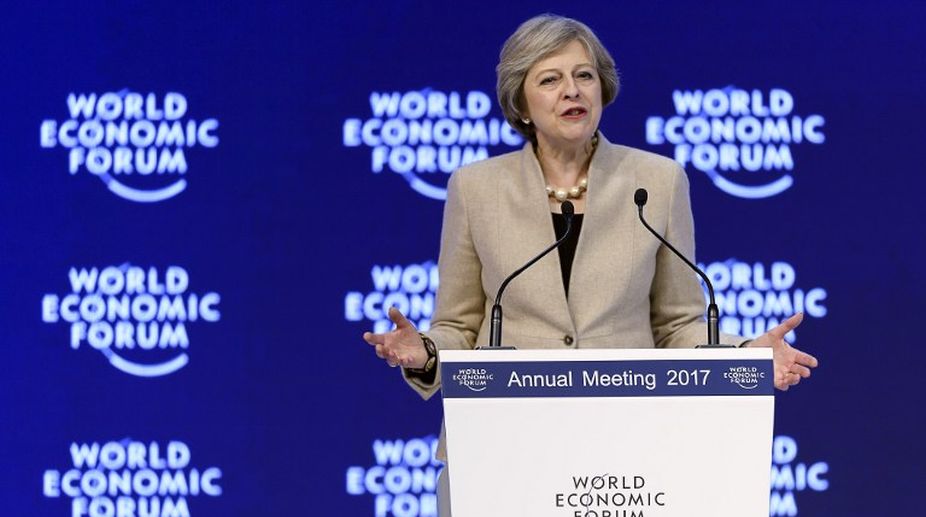EU, G7 leaders urge preventing escalation in Mideast
European Union (EU) and Group of Seven (G7) leaders have called for preventing a further escalation of the situation in the Middle East following Iran's retaliatory strikes on Israel.

Theresa May (Photo: AFP)
Six months after stepping into 10 Downing Street, the British Prime Minister has eventually signalled her intent to enable Brexit to attain fruition. In course of the presentation at London’s Lancaster House, Theresa May has stopped short of attributing the reasons for the seven-month delay in spelling out the roadmap, let alone the resultant confusion and uncertainty. During which time, there has without question emerged a groundswell of reservations on the issue. Not that Brexit per se has been under a cloud; yet a second thought on the issue has been palpable over the past several months… and not necessarily at the behest of Brussels. Is it possible that the slender margin of victory scored by the “Leave” camp had precipitated a closer reflection? Did the recent resignation of Sir Ivan Rogers, Britain’s ambassador to EU, and his home-truths hasten the Prime Minister’s much-touted speech on Brexit? Answers to these queries might not be forthcoming quite yet. It is only fair to assume that the Prime Minister, a robust proponent of “Leave”, needed to set the record straight, indeed to clear the fog ~ however figuratively ~ in the midst of the damp English winter. Her speech skirted the customary ranting at the policies of EU, vociferously articulated in course of the campaign ahead of the June 23 referendum. Chiefly, she has asserted that the UK would leave the European Union’s single market, and that MPs and peers will get a final vote on the deal. She sounded decidedly rhetorical when she remarked, “No deal for Britain is better than a bad deal for Britain.” Much as she has made a commitment to the legislative organ of a vigorous democracy, she was somewhat dodgy to a seemingly hypothetical query by the British media ~ What happens if Parliament blocks the deal with EU?
Ms May’s thrust was on economic independence, and this has been underlined with the pledge that the UK would not be a full member of the Customs Union, but would hope to strike a tariff-free deal, and continue to cooperate in such areas as crime and anti-terrorism. If the EU failed to offer a good deal, Britain could put in place a low-tax regime to “poach investment”. Less explicit was her plan to address the sensitive issue of immigration. In her reckoning, the referendum has been a message from the British people to curb immigration. For all that, she is yet to outline how she intends to bring down immigration figures. Quite the most critical feature of her Brexit agenda is to ensure “free trade with European markets and new trade agreements with other countries”. Theresa May is poised to preside over a new phase in Britain’s economic history; but Brexit remains an iffy consummation to be devoutly wished.
Advertisement
Advertisement